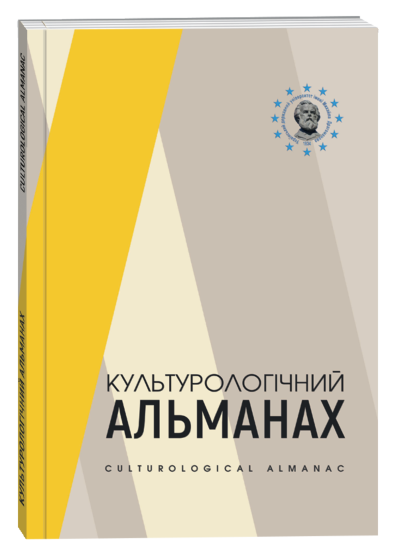CULTURE AS THE OVERCOMING OF INSTINCT BY REASON
DOI:
https://doi.org/10.31392/cult.alm.2023.2.39Keywords:
culture as development, law and morality, custom and instinct, totem.Abstract
The main idea put forth in this article is that history can be understood as a process of development, much like the growth of an embryo, which unfolds over time under the influence of various individuals with greater or lesser contributions. This concept conveys two key points: firstly, that what we do in the present may shape the future; and secondly, that the future is not predetermined. The result of this process of development is called culture. We can distinguish between material culture and spiritual culture, although they are closely interconnected. Like any other physical entity, a person must satisfy their basic needs and create a peaceful environment to thrive. All forms of development occur within a rational society, where people act deliberately rather than impulsively, balancing their needs and wants while recognizing what is necessary and feasible. The human mind is what enables us to transcend our base instincts and adapt to new realities. Whereas instinct drives us toward habitual patterns of behavior, reason and reflection allow us to overcome these tendencies. Humanity's advantage lies in its ability to embrace change and reject harmful habits, thereby advancing progress and development. Law can be understood as a strict set of rules that outline the expectations of society. Alongside law, morality emerges as a third element. Morality represents a higher-order system that guides our behavior and helps us make ethical decisions. The development process often occurs in contrast, such as when individual rights emerge from the supremacy of the rule of law, but the security of those rights can be threatened by the power of governments or strong leaders. Ultimately, progress occurs through a balance of individualization and cooperation. Society must preserve individual liberties while promoting collective goals and shared values. By overcoming our instincts and embracing reason and morality, we can build a more just and equitable society that benefits everyone.
References
Гегель Ґ. В. Ф. (2000). Основи філософії права, або Природне право і державознавство / пер. з нім. Р. Осадчука та М. Кушніра. Київ : Юніверс. 336 с.
Гегель Ґ. В. Ф. (2004). Феноменологія духу / з нім. пер. П. Таращук. Наук. ред. пер. Ю. Кушаков. Київ : Видавництво Соломії Павличко «Основи». 548 с.
Гоббс Т. (2000). Левіафан / пер. з англ. Київ : Дух і Літера. 606 с.
Леві-Строс К. (2000). Первісне мислення / пер. з франц., вступ. слово та прим. С. Йосипенка. Київ : Український центр духовної культури. 324 с.








